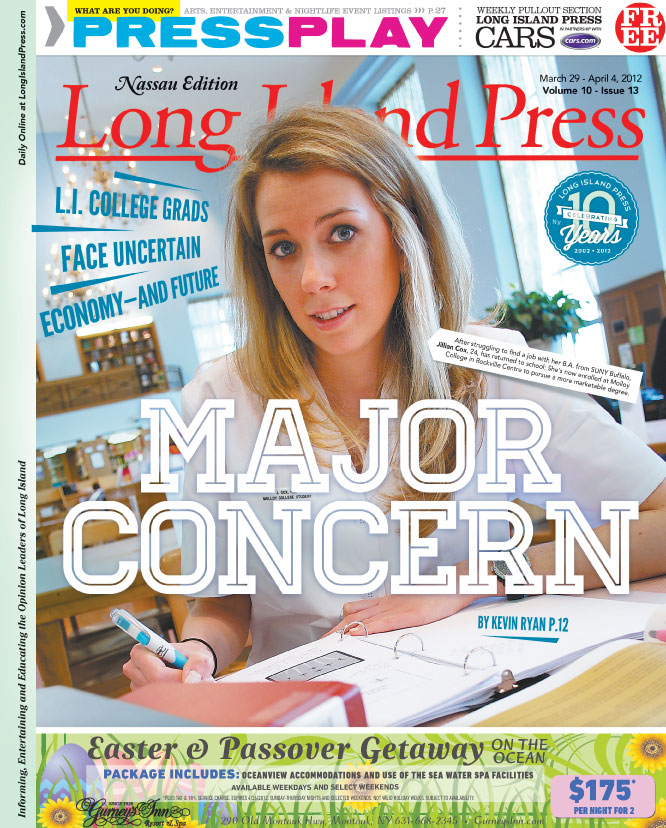By Michael Gormley
This is the week you won’t be getting that tax rebate check.
And don’t expect those checks — typically $400 to $500 and sent to property tax payers every fall since 2006 — to return any time soon. Even the less tangible benefit of STAR, a school tax break paid directly to schools, is shrinking every year. Both were cut to balance state budgets.
Times are hard, New York, and despite the rosy signs from news magazines declaring the recession over and some Wall Street banks talking about turning a profit, times will stay hard here for months to come.
A good part of the lingering pain isn’t the fault of Wall Street or Washington, but Albany. And much of it will play out over the next several critical months as economics, politics and policy collide as never before.
Last week, Gov. David Paterson’s budget office reported tax revenue from late September showed now reason for optimism, which means jobs, income, sales and business activities aren’t bouncing back. Even when they do, recoveries from recessions in New York have historically lagged behind national rebounds. For most states, history shows six or more years may be needed for sales and income taxes — two-thirds of states’ revenue — to return to pre-recession levels.
That’s what Paterson has said since he, almost alone, warned of serious fiscal straits ahead back in a televised address in July of 2008: “Costs are rising steadily and revenues are dropping dramatically … These times call for action.”
But some of that action has been more spending, compounding what Paterson has called years of overspending.
A week ago, the Kaiser Family Foundation’s Commission on Medicaid and the Uninsured found New York and other states’ Medicaid programs could face a revenue crunch that would hurt programs and provider reimbursement in the 2011 fiscal year, after federal stimulus money dries up.
New York is also one of a handful of states that may lose even a chance at a share of $4 billion in federal “Race to the Top” education stimulus funding. President Barack Obama wants to use the funding to encourage states to use student test performance in evaluating teachers and to let charter schools, a publicly funded and innovative competitor of traditional schools, flourish. In New York, however, the powerful teachers unions have led a charge to cap charter schools and to prohibit the use of student test scores in granting tenure to teachers.
In Washington, New York’s tenure provision is seen as narrow enough to avoid disqualifying the state from the funds. But the view in Albany is less clear.
And just when you need your elected officials in Albany to work together, they aren’t.
Last week, Paterson started playing hard ball with the Legislature, but without a team.
Senate and Assembly Democrats felt sandbagged when the Democratic governor told lawmakers to come up with their own politically dicey spending cuts totaling $2.5 billion and to present those proposals by Wednesday. That also drew unwelcome attention to the fact that some top Democratic lawmakers will be in China at the time, on a junket with the aim of drumming up business for New York.
Lawmakers have insisted Paterson, like governor’s before him, should come up with midyear cuts and they would react to them, leaving Paterson as the heavy. Paterson argued he cut $500 million from the executive branch already, and $1 billion from the agencies last year, but agencies under his direct control are just 20 percent of the budget. Unpopular cuts to education, health care and other services require the Legislature’s approval to fully address a deficit of about $3 billion.
Paterson has played that role before, and has record-low polls a year later to show for it.
That leads to the other crisis smacking New York.
Democrats had privately given Paterson until December to bounce back in the polls, show he could win election in 2010 and not threaten the rest of the Democratic ticket. But his budget cuts and his own political mistakes have only diminished his stock and Democratic leaders in Albany and Washington have all but publicly abandoned him.
That saps Paterson’s political clout, making any cuts even harder to achieve.
Meanwhile, Senate Democrats last week stood with the popular Democratic attorney general and potential Paterson rival Andrew Cuomo in supporting his bill for landmark reform of the state pension fund. Polls show Cuomo and Republican Rudy Giuliani would easily beat Paterson in 2010, and Cuomo would beat Giuliani.
Back in Albany, special interests are also gearing up.
For Paterson, who has already told his own party he won’t quit his run for a full term in 2010, there is little to lose. He can push the powers of the office and try to use the bully pulpit to draw New Yorkers to him and against the rest of Albany. The effort, and what could be his last stand, is under way.
“The only people I answer to are the people of this state,” Paterson said last week. “I keep hearing about all these people who are running for office,” he said on CNBC’s “Squawk Box.” ”If you had any courage, if you wanted to become a leader in a crisis, get up and say what you’d do now.”






